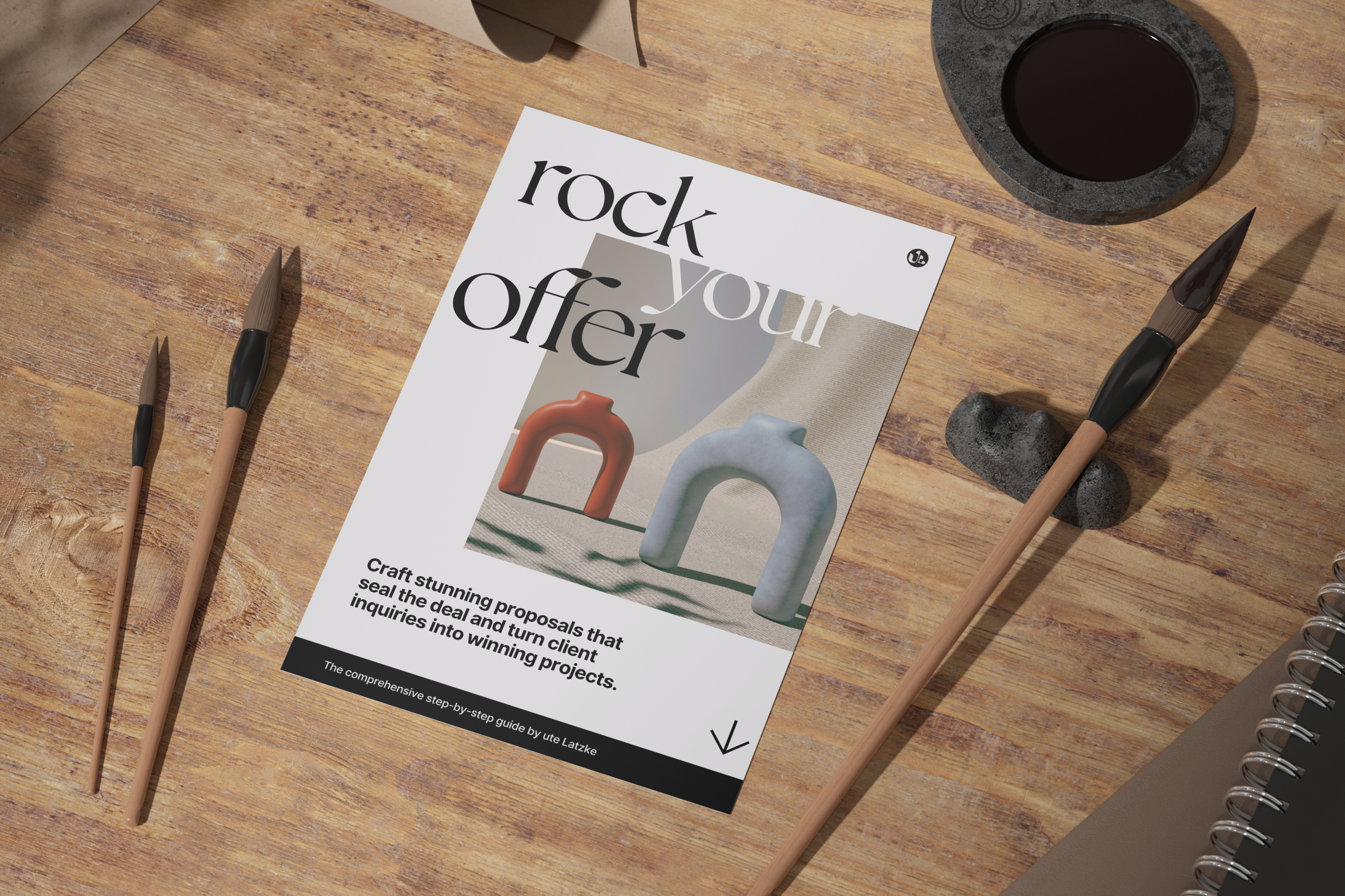Five reasons why clients ask for design proposals – but don't always hire
Why do clients ask designers, architects, photographers or agencies for a quote – only to not follow through? After years of experience, we have learned this: Requesting a quote or estimate doesn't equal placing an order. Sometimes there's strategy behind it, sometimes pure curiosity. Discover what the real motivation is and what you can learn from it.
Another project without a contract despite submitting your proposal? You're not alone. Many creative pros, studios and agencies know this disappointment. But before you craft your next offer, you should consider one crucial factor: the real reasons why clients request quotes in the first place. These motives are more diverse than you might think. Discover the five most common motivations behind requests for estimates – and lay the groundwork for more successful proposals in the future. I'll show you a path forward below.
1. Getting more information
A client requests a quote to learn more details. This can be a legitimate inquiry, especially if you haven't clarified all points sufficiently during your first conversation. But the mistake happens when you send a detailed proposal anyway, without first discussing the budget range and general expectations. This way, you might end up sending your time-intensive offer to someone who's just testing the waters – without genuine purchase intent. The solution is to ask directly about their needs during the conversation and clarify whether any uncertainties remain.
2. Comparing services and prices
Many prospects request quotes to compare them with other providers. This is part of the process and usually perfectly fine. However, it can become a time trap to engage further. On the other hand: maybe you're actually in the running? Then it might make sense to ask whether other proposals are in play and what the current status is. An honest conversation or follow-up question is helpful and often better than waiting it out – or investing your energy in further, elaborate proposal stages.
3. Testing professionalism
Another common reason for requesting a quote is that the client wants to see how well you present yourself and the value of your expertise. This is used as a test run to check your professionalism. And here lies the big opportunity: if you design your pitch so that your style and work quality become visible, you'll impress prospects.
4. The polite No
There are clients who have already decided not to work with you. However, they find it difficult to express this directly. So they still request a quote anyway. This is usually the convenient way to end negotiations without having to say a clear "no." This isn't just unpleasant – it's also a trap that costs lots of time and energy. It helps to address how the decision-making process looks during the conversation or proposal phase. This way, you can clarify possible misunderstandings early and avoid diving into a proposal that doesn't stand a chance.
5. Ready to hire you – the ideal case!
You've already discussed the budget, timeline and project scope. The client is interested and has already given verbal confirmation. Now they want to record the details and have something concrete "in hand." This is the moment when your proposal isn't just a document, but a genuine part of building trust. In this case, you can celebrate because you're about to get the contract.
Present your offer magnificently & with style
I too have written many offers purely factually – simple price lists, without emotion, without story. This was often even requested by clients. But it felt wrong: dull and soulless. Yet a proposal is the chance to communicate what's essential while inspiring at the same time, because not all prospects scan through websites.
A convincing proposal is more than numbers and facts. It's the opportunity to build trust, communicate your value and show what's possible when working with you. The best proposals don't just list prices – they address the client's expectations and needs and, above all, show your personality and expertise.
That's why I developed Rock Your Offer: a guide for proposal presentations that convince with hard facts while inspiring with style and emotion. So they become the deciding factor for your contract. The five typical reasons mentioned above are part of the strategic guide that shows you how to create proposal presentations that truly excite.
So if you know the feeling that your valuable work in proposals keeps fizzling out, maybe it's time to rethink your presentation? I invite you to learn more about how Rock Your Offer can help you.
Want to read the German Version? Cllick here.



